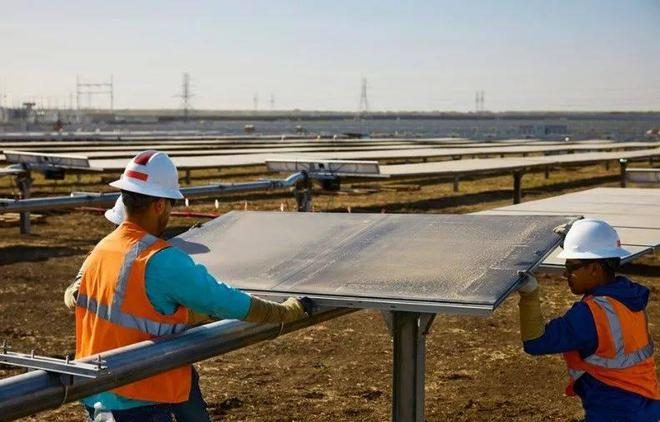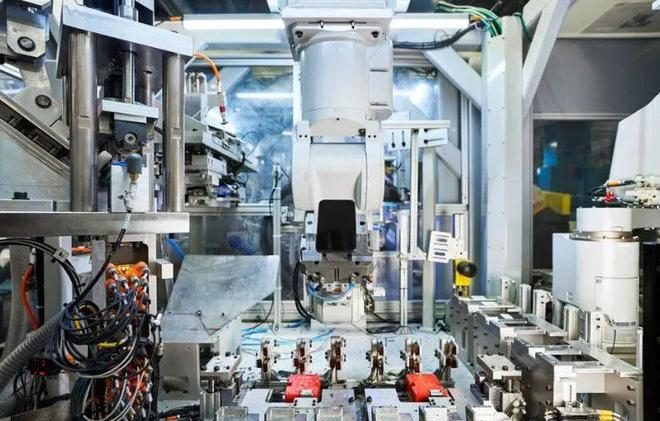In a global context, over 800 companies have set carbon neutrality goals, with more than 50 companies announcing they have achieved carbon neutrality. For instance, Apple declared in July last year its commitment to achieving carbon neutrality across its entire business, manufacturing supply chain, and product lifecycle by 2030. ExxonMobil aims for net zero growth by 2025, while Shell aims to become a significantly low-carbon enterprise by 2030 and achieve net-zero emissions by 2050. On the domestic front, Tencent initiated its carbon neutrality plan in January, and Tongwei Group aims to achieve carbon neutrality by 2023.
Lisa Jackson, Apple’s Chief Sustainability Officer, has played a pivotal role in Apple’s transition to a greener future. As the former head of the U.S. Environmental Protection Agency, she pledged that Apple and its supply chain would achieve carbon neutrality by 2030, impacting Apple’s stock and industry supply chain.
More than 200 suppliers committed to transitioning to the use of clean energy, as part of Apple’s latest environmental commitment. Balancing consumer demand and achieving net-zero carbon emissions poses a significant challenge for companies. Jackson, as a key driver of Apple’s decarbonization, has led the company toward a green energy transformation.

Despite ongoing consumer demand for the latest tech products, reducing carbon emissions from supply chains, production processes, and packaging remains a challenge for many tech companies. In recent years, Apple has actively pursued a transition to green energy.
To address climate change, Apple pledged in 2020 to achieve 100% carbon neutrality for its supply chain and products by 2030, 20 years earlier than the recommended target by the Intergovernmental Panel on Climate Change (IPCC). Apple recently announced that over 200 suppliers are now operating entirely on renewable energy, with over 10 million kilowatts of the promised nearly 16 million kilowatts of green clean energy already in use.

Clearly, Jackson’s influence has turned Apple green, triggering a reshuffling of global supply chains. Suppliers within Apple’s supply chain must adapt to this net-zero trend, or risk falling behind in the global business competition.
As the first African American head of the Environmental Protection Agency, Jackson has been a significant advocate for the “greening” of Apple. Oprah Daily highly praises Jackson, stating that one of Apple’s latest innovations is hiring an environmental policy expert to implement meaningful change.

Before joining Apple in 2013, Jackson served as the first African American head of the Environmental Protection Agency under the Obama administration. With a background in chemistry and over 20 years of government service, she focused on reducing greenhouse gas emissions, protecting air and water quality, and preventing exposure to toxic pollution.
Apple not only reduces carbon but also introduces innovative recycling technology. Jackson emphasized that she has always believed the tech industry can set an example in integrating sustainable practices, making the world a better place, and ensuring Apple’s contribution to this goal.
Under Jackson’s leadership for nearly a decade, Apple has spared no effort in achieving its decarbonization goals. In 2018, Apple announced that offices, data centers, and retail stores were all using 100% renewable energy. By 2020, Apple pledged to achieve 100% carbon neutrality for its supply chain and products by 2030.
Over the past five years from 2016 to 2021, Apple has reduced its carbon footprint by 40%. The carbon footprint of the iPhone 13 Pro is 11% lower than its predecessor. Beyond carbon reduction, nearly 20% of all Apple products last year were made from recyclable and renewable materials, the highest proportion in history.
To expand the use of recycled materials, Apple also unveiled the latest innovative recycling technology called Taz.

This breakthrough method improves the recycling of materials from traditional electronic products. Apple uses the recycled materials repeatedly in the next generation of tech products. Last year, 59% of the aluminum in all Apple products came from recycled sources.
Jackson stated that real progress has been made in responding to the climate crisis, with the ultimate goal of producing Apple products without consuming Earth’s resources someday.
This article is excerpted from “Vision” magazine and written by He Chenwei.
